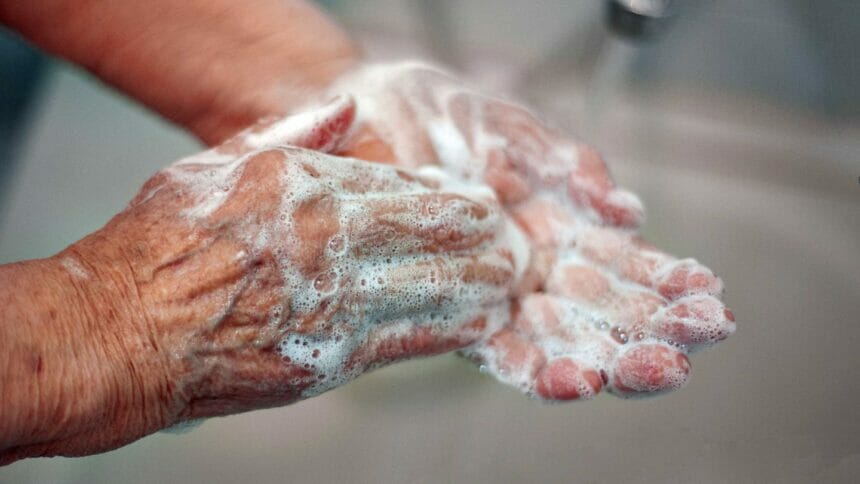
Gentle cleansers are just as effective as harsh soaps at killing certain viral pathogens that are common targets in healthcare facility infection control, a new study has found.
Uptick in contact dermatitis
Healthcare providers, who must wash their hands many times each day, often switch to gentle cleansers to prevent or help heal contact dermatitis caused by irritants in hand sanitizers with harsh ingredients, according to researchers from the United Kingdom. During the pandemic, the incidence and severity of this dermatological condition rose from 20% to 80% among healthcare professionals, they reported.
The current study tested the ability of common cleansers to kill both enveloped viruses such as the human coronavirus and influenza (which have an additional layer of protection) and non-enveloped viruses, such as norovirus and adenovirus.
Cleansers studied included antibacterial soap, natural soap, foam cleansers and bath wash products.
Results showed that gentle cleansers effectively killed enveloped viruses, even when moisturizers were also used. But the non-enveloped viruses studied were resistant to all cleansers tested — both skin-friendly cleansers and harsh soaps. The most resistant of the viruses tested was norovirus, which causes common seasonal stomach illnesses. This was true even when exposure was increased from 20 seconds to one minute. Bleach was the only cleanser tested that consistently killed norovirus.
A win for healthcare workers
The researchers took the positive aspects of the findings as a win for healthcare workers.
“For the first time, our study has shown substituting harsh soaps with milder wash products such as gentle cleansers is effective in fighting against enveloped viruses, including human coronavirus, which is very encouraging — especially for those in jobs in which irritant contact dermatitis is an occupational hazard,” Munitta Muthana, PhD, from the University of Sheffield in England, said in a statement.
Researchers recommended that other infection prevention measures be taken to combat norovirus. Isolation and disinfecting surfaces with bleach may be most effective, the authors concluded.
The study was published in Frontiers in Virology.
Related articles:
CMS: Lapses in infection control, vaccine compliance to garner ‘aggressive’ enforcement
Effectiveness of hand washing hinges on how hands are dried, experts say



